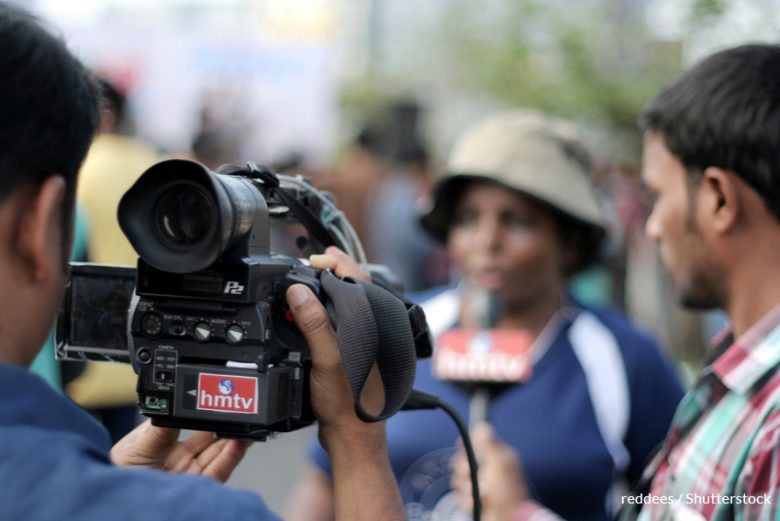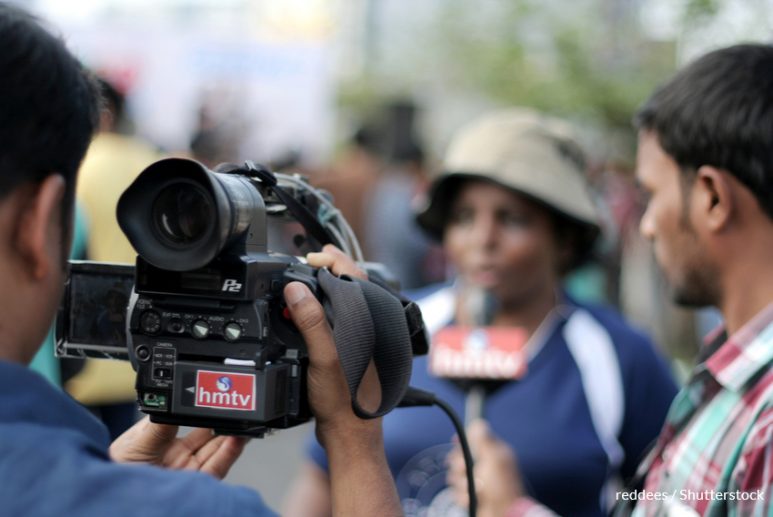By Abdullahi Jimoh
The intense fighting and humanitarian crisis in Gaza have dominated headlines and news coverage around the world. With most of the reporting coming from journalists and people living in Gaza, the role of the media in conflict has again been highlighted. Many journalists and media professionals have lost family members and friends in the conflict. Many journalists have also lost their lives. According to the Committee for the Protection of Journalists, at least 42 journalists and media workers have died to 15 November.

The way the world’s media have covered this conflict has also come under scrutiny. Some have received criticism for everything from double standards to bias.
In Africa, the coverage has been mixed. The conflict is not always widely reported, and coverage is often reliant on foreign sources. The country’s stance on the situation is not always reflected.
Despite a focus on different local and regional humanitarian crises ranging from climate change, earthquakes, poverty, and internal wars to military take overs, governments and media have keenly expressed deep concern for events in the Middle East.
Many African media companies source stories related to the war from large foreign platforms as they are short of correspondents to cover events directly there. This is due to their dwindling revenue to maintain foreign correspondents, unlike foreign media that send their correspondents to cover regions including Africa. According to a research survey carried out by Africa No Filter between September and October 2020, about 63% of media outlets surveyed in Africa didn’t have foreign correspondents in other African countries let alone beyond the continent. Sourcing from AFP and BBC accounts for a quarter of the news stories found on Africa media platforms about other African countries. Some of the popular sources for content include AP, AFP, BBC, CNN, and the Daily Mail.
The type of coverage depends on the platform they source their news and op-eds from, and how they themselves understand the situation.
For example, the Kenyan government is an ally, Israel but it cannot censor its media. An article published on Oct. 29 entitled Palestine Question: Be on the right side of history by The Star newspaper, a popular news platform in the country, allows the audience to decide for themselves.
South Africa is an ally to Palestine, and its media are publishing content related to the devastation in Gaza Strip that has the power to influence their audiences. News24, a popular news platform in Cape Town, covered the activities of a pro- Palestine group known as Defend our Democracy which calls for an end to the bombardment in Gaza. Another newspaper, the Mail & Guardian in Johannesburg, also published an opinion article on Oct. 25 entitled; The long taproot of Hamas violence which was written by Drew Forrest, the Deputy editor and former political editor of the newspaper, and covered the history of the conflict.
Although Rwanda, Democratic Republic of Congo, and Ghana share strong relations with Israel, Rwanda and DRC media hardly cover the situation in the Middle East. In Ghana, the government-owned newspaper, theGhanaian Times, tries to cover the for cessation of hostilities from both sides. In Zambia,\ the government has a strong alliance with Israel. Its decision to abstain from voting during the UN General Assembly call for a resolution on the conflict got people talking. Their can be viewed in the Lusaka Times news platform.
News platforms in Sudan, Egypt and Tunisia focus on the war victims in Gaza. Although, the Ugandan and Nigerian governments take a neutral stance on the conflict, only two major private newspapers in Nigeria, The Punch and Daily Trust, have interest in covering the conflict. The former sources updates from the foreign media that focus on vandalism in Israel, while the latter focuses on Gaza. In Nigeria, often reactions to new coverage are based along religious lines. When The Punch posted an article on the latest fighting and death toll in Gaza on its Facebook page, Nigerians in the south west of the country were commenting based on their religious affiliation, while people in other African countries do not view it as religious war.

